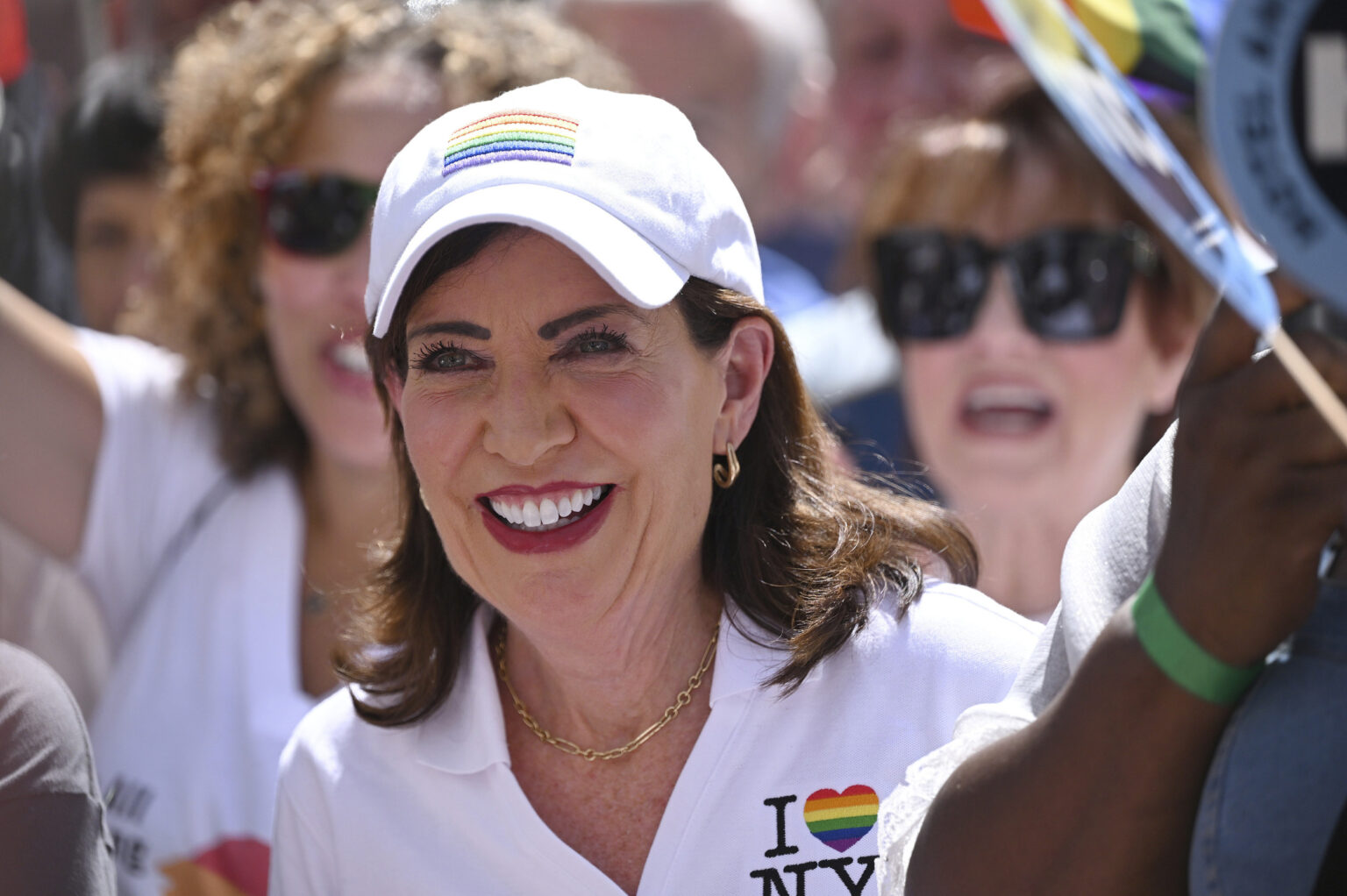Millions of New Yorkers are at risk of losing their health insurance coverage, Governor Kathy Hochul warned this week as the fallout from President Donald Trump’s recently signed One Big Beautiful Bill Act begins to take shape.
Hochul said the legislation would slash $3 billion from New York’s health care system, triggering major cuts that could leave more than 2 million residents without their current coverage. Of those, an estimated 1.3 million could lose access to Medicaid because of new eligibility requirements and verification hurdles included in the law.
Why It Matters
Trump signed the One Big Beautiful Bill Act into law on July 4, with cuts to Medicaid among the legislation’s controversial provisions.
New York runs one of the largest Medicaid programs in the country, leaving the state particularly vulnerable to the bill.
What To Know
On Thursday, Hochul convened a Cabinet meeting to outline the sweeping consequences of the newly signed One Big Beautiful Bill Act, warning it would leave millions of New Yorkers vulnerable to losing health coverage and food assistance while straining the state’s finances for years to come.
According to new estimates from the nonpartisan Congressional Budget Office, the bill will cut about $1.1 trillion in health care spending and result in 11.8 million people losing Medicaid health insurance over the next decade.
One of the most consequential elements of the federal law restricts which immigrant populations qualify for Medicaid coverage under the Essential Plan. Only green card holders and immigrants from a limited list of countries—including Cuba, Haiti and some Pacific Island nations—will remain eligible.
In New York, the governor warned, the changes could be especially devastating.
The change is expected to strip coverage from about 500,000 immigrants in New York, leaving the state with an estimated $3 billion annual bill if it opts to maintain their insurance. Hochul said the administration was evaluating a potential legislative response in light of a 2001 state court ruling that requires the state to provide Medicaid coverage to some immigrants excluded from federal programs.
“We’re having discussions now internally, but also will be engaging the leaders of the Legislature during this time,” she said.
Hochul also warned that the federal health care cuts would hit rural hospitals especially hard. “Most of our state is rural,” she said. “If we start closing these hospitals, you’ll have to drive great distances—and that’s dangerous.”
Although the governor said her team anticipated some federal cuts—prompting a $400 billion reduction in projected state spending and the downsizing of a planned inflation rebate from $300 million to $200 million—the scope of the new law exceeds what the state had prepared for.
Like Medicaid, the Supplemental Nutrition Assistance Program is also set to undergo funding changes. Under the new law, the federal government plans to continue funding SNAP, but states now have to share some of the cost if their payment error rate is 6 percent or higher, beginning in 2028—two years after the next midterm elections.
Beginning in October 2027, New York would be required to fund 15 percent of all SNAP benefits—a projected $1.2 billion annual cost. At the same time, the federal government’s share would drop from 50 percent to 25 percent.
The state would have to pay an additional $36 million annually, while counties and New York City would shoulder an extra $168 million.
According to New York officials, up to 3 million residents may see their food benefits jeopardized as a result of the changes.
Hochul has also said the bill will cost New York $750 million this year and $3 billion next year alone.
What People Are Saying
New York Governor Kathy Hochul said in a news release on Thursday: “While Republicans in Washington callously slash funding for vital programs across the country, my administration is standing up for New Yorkers to soften the blow of these cuts amidst an affordability crisis.
“President Trump’s devastating ‘Big Ugly Bill’ will inflict harm across the state, leaving detrimental gaps in funding and families without the crucial benefits and coverage that they need. New York State remains laser-focused on ensuring New Yorkers have access to resources and support necessary to uplift them and their families.”
What Happens Next
Medicaid’s funding changes under the new law are not scheduled to take effect until 2028.
Read the full article here

